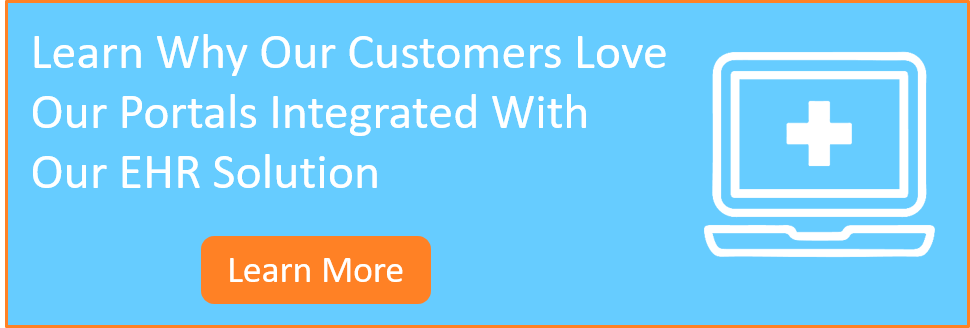In the rapidly evolving healthcare landscape, the integration of artificial intelligence (AI) into electronic health records (EHR) systems is nothing short of transformative. AI is enhancing the functionality and efficiency of EHR systems in several groundbreaking ways, making healthcare more precise, efficient, and patient-centered. Let’s delve into the various applications of AI within EHR systems and explore how they are revolutionizing the field.
1. Clinical Decision Support
One of the most impactful ways AI is used in EHR systems is through clinical decision support. AI algorithms can analyze vast amounts of medical data and provide real-time, evidence-based recommendations for diagnosis, treatment plans, and medication management. This not only helps in reducing medical errors but also significantly improves patient outcomes. For example, an AI system can alert a physician about potential drug interactions or suggest alternative treatment options based on the latest research, thereby enhancing the quality of care.
2. Predictive Analytics
Predictive analytics powered by AI can foresee potential patient outcomes by analyzing historical data and identifying patterns that may not be evident to human clinicians. This capability is instrumental in managing chronic diseases and in population health management. For instance, AI can predict the likelihood of hospital readmissions or complications, enabling healthcare providers to take proactive measures. This predictive capability ensures timely interventions, which can be life-saving in many cases.
3. Natural Language Processing (NLP)
Natural Language Processing (NLP) is a branch of AI that enables machines to understand and interpret human language. Within EHR systems, NLP can be used to transcribe and interpret clinical notes, making extracting meaningful information from unstructured data easier. This saves time and ensures that critical information is not overlooked. Imagine a scenario where a clinician's spoken notes are instantly converted into structured EHR entries, freeing up valuable time spent on patient care.
4. Automated Documentation
AI can significantly reduce the administrative burden on healthcare providers by automating the documentation process. Voice recognition software and AI-powered scribing tools can capture patient interactions and automatically update the EHR. This automated documentation allows clinicians to focus more on patient care than paperwork. This can be a game-changer for solo and small practices, freeing up resources and enhancing operational efficiency.
5. Personalized Treatment Plans
AI can analyze EHR data to develop personalized treatment plans tailored to individual patients. AI can recommend the most effective treatment options by considering a patient’s medical history, genetic information, and lifestyle factors. This level of personalization ensures that patients receive care specifically suited to their unique needs, thereby enhancing the efficacy of treatments and improving patient satisfaction.
6. Enhanced Data Security
In the age of digital healthcare, data security is paramount. AI can bolster the security of EHR systems by detecting unusual patterns that may indicate a data breach or cyberattack. Machine learning algorithms can continuously monitor the system for anomalies, ensuring that patient data remains secure and compliant with regulations. This proactive approach to security is crucial in maintaining patient trust and protecting sensitive health information.
7. Patient Engagement and Support
AI-powered chatbots and virtual assistants integrated with EHR systems can provide patients 24/7 support. These tools can answer common medical questions, help schedule appointments, and provide medication reminders, thereby improving patient engagement and adherence to treatment plans. Enhanced patient engagement not only improves satisfaction but also encourages proactive health management.
8. Interoperability
AI facilitates better interoperability between EHR systems by standardizing data formats and enabling seamless data exchange. This ensures that healthcare providers can access comprehensive patient information, regardless of the EHR system used. Improved interoperability enhances care coordination and ensures patients receive consistent and well-informed treatment across different healthcare settings.
9. Operational Efficiency
AI can optimize various administrative tasks such as scheduling, billing, and inventory management. By automating these processes, EHR systems can reduce operational costs and improve the overall efficiency of healthcare practices. For example, AI can predict patient no-shows and optimize appointment schedules, ensuring that healthcare providers can maximize their time and resources.
10. Image and Pattern Recognition
AI algorithms can analyze medical images and identify patterns indicative of specific conditions. When integrated with EHR systems, this capability allows for faster and more accurate diagnoses, particularly in radiology and pathology. AI can assist in detecting abnormalities in medical images that may be missed by the human eye, thus aiding in early diagnosis and treatment.
Conclusion
AI enhances EHR systems by improving clinical decision-making, streamlining administrative tasks, personalizing patient care, and ensuring data security. As AI technology continues to evolve, its integration into EHR systems will become even more sophisticated, further transforming the healthcare landscape. For solo and small practices, the adoption of AI-enhanced EHR systems can be particularly beneficial, offering a range of tools to improve efficiency, accuracy, and patient care. The future of healthcare is undoubtedly intertwined with the advancements in AI, and its impact on EHR systems is just the beginning of a broader transformation in how healthcare is delivered and managed.







